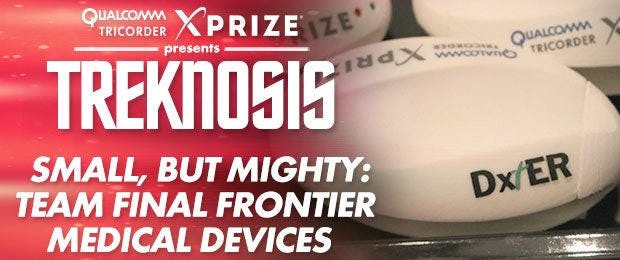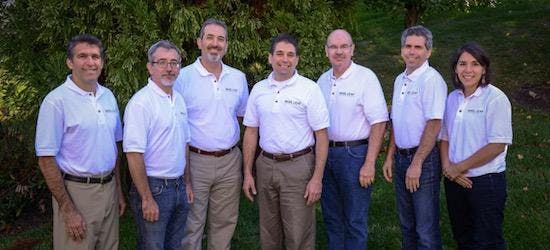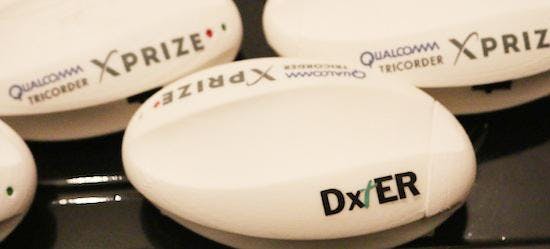Published Jul 6, 2015
Final Frontier Medical Devices
Final Frontier Medical Devices

Somewhere in Philadelphia, there's a house full of tricorders. Literally. The living room, the dining room, even the kitchen is stuffed with computers, tools, testing equipment and 3D printed casings. The people working inside don't have a big lab or a fancy office space. They're Final Frontier Medical Devices, and they're a finalist team in the $10 million Qualcomm Tricorder XPRIZE competition — all seven of them. Impressed? "My sister likes to say we're small, but mighty," the team’s founder chuckles. "Everyone has full-time jobs elsewhere, so this is a part-time gig for us, cobbling this together in our free hours."Things get even more impressive when you find out exactly who this team’s founder is: he's Dr. Basil Harris, MD, PhD, FACEP. Those last five letters means he's an ER doctor, and a damn good one. "It's just like you'd imagine any busy ER," Dr. Harris says of his work at Lankenau Medical Center in West Philly, "overrun, undersized, always busy. There's no downtime. You're lucky if you get to pause to go to the bathroom in a 12-hour stretch." So in his “free” time, this guy heads up a group building a working medical tricorder? "I'm the nut who had that idea," he grins.Nuttiness of this type may run in the family. Dad is a retired engineer, but Dr. Harris credits much of his life's path to his brother Constantine "Gus" Harris, who was working on a PhD in electrical engineering at Rensselaer Polytechnic Institute before ditching it for the relaxing world of medical school; Gus is now a urologist and a Fellow of the American College of Surgeons. Dr. Harris himself got his PhD in civil engineering before making a similar leap. "I gravitated towards emergency medicine because I didn't want to be completely focused on just one item; I loved the variety and the pace and the chaos of the emergency department. You take care of everything, and you have no clue what's coming through the door next; that's where I've been now for 10 years." Dr. Harris is joined on Final Frontier by another brother, George, and aforementioned sister, Julia, who holds a Masters of Public Health degree (clearly a family of lazy underachievers).







